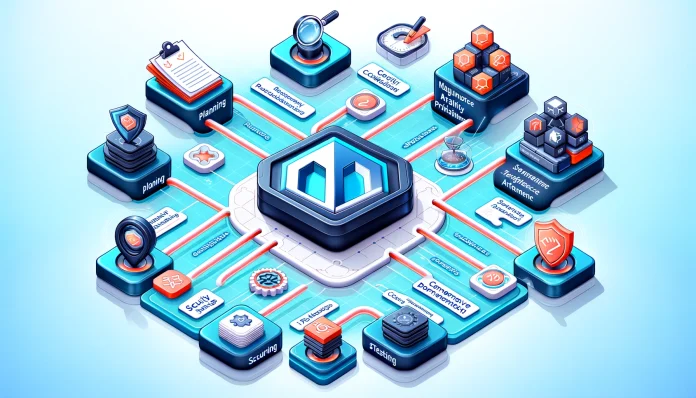In the rapidly evolving world of e-commerce, the ability to customize and extend your platform’s functionality is paramount. Magento 2, a robust and flexible open-source e-commerce platform, allows businesses to tailor their online stores to meet specific needs and enhance user experience through the development of custom extensions. This article delves into the best practices for Magento 2 extension development, ensuring that your extensions are efficient, secure, and maintainable.
Understanding Magento 2 Extensions
Magento 2 extensions are essentially add-ons or plugins that provide additional features and functionalities to a Magento store. These can range from simple UI enhancements to complex integrations with third-party services. The primary goal of any extension is to improve the overall functionality and user experience of the e-commerce site.
Best Practices for Magento 2 Extension Development
1. Planning and Requirements Gathering
Before diving into coding, it’s crucial to have a clear understanding of what the extension should accomplish. Gather detailed requirements and plan the extension’s architecture. Consider the following questions:
- What problem does the extension solve?
- How will it integrate with existing systems?
- What are the potential impacts on performance and security?
A well-thought-out plan will save time and reduce the likelihood of encountering significant issues during development.
2. Follow Magento 2 Coding Standards
Adhering to Magento’s coding standards is essential for maintaining consistency and ensuring compatibility with other extensions and the core platform. These standards cover various aspects of coding, including naming conventions, file structure, and code style. Utilizing these guidelines will make your code more readable and maintainable.
3. Utilize Magento 2’s Modular Architecture
Magento 2’s modular architecture is designed to keep functionalities encapsulated within modules. This structure helps in maintaining a clean and organized codebase. Each extension should be developed as a separate module, with its own configuration, dependencies, and lifecycle. This modularity allows for easier updates and debugging.
4. Prioritize Security
Security should be a top priority in any extension development project. Ensure that your extension follows Magento’s security best practices, such as:
- Validating and sanitizing all user inputs to prevent SQL injection and cross-site scripting (XSS) attacks.
- Using Magento’s built-in security features, like the Magento Vault, for handling sensitive data.
- Regularly updating your extension to patch any discovered vulnerabilities.
5. Optimize for Performance
Extensions should be designed to have minimal impact on the performance of the Magento store. Consider the following performance optimization tips:
- Avoid loading unnecessary resources or data.
- Use Magento’s caching mechanisms to reduce load times.
- Optimize database queries to ensure they are efficient and do not cause bottlenecks.
6. Comprehensive Testing
Testing is a critical phase in the development process. Ensure that your extension undergoes thorough testing, including:
- Unit testing to verify individual components.
- Integration testing to ensure the extension works seamlessly with other parts of the system.
- Performance testing to check for any adverse effects on the store’s speed and responsiveness.
Automated testing tools and Magento’s own testing frameworks can help streamline this process and ensure consistent results.
7. Documentation and Support
Providing clear and comprehensive documentation is essential for helping users understand and effectively use your extension. Documentation should cover installation, configuration, usage, and troubleshooting. Additionally, offering reliable support can enhance user satisfaction and build trust in your extension development services.
Conclusion
Magento 2 extension development is a powerful way to enhance your e-commerce platform’s capabilities. By following best practices such as thorough planning, adhering to coding standards, prioritizing security, optimizing performance, comprehensive testing, and providing detailed documentation, you can develop robust and reliable extensions. For businesses seeking professional assistance, leveraging magento 2 extension development services can ensure high-quality and tailored solutions that meet specific business needs. With the right approach, your Magento store can offer a superior shopping experience that stands out in the competitive e-commerce landscape.







